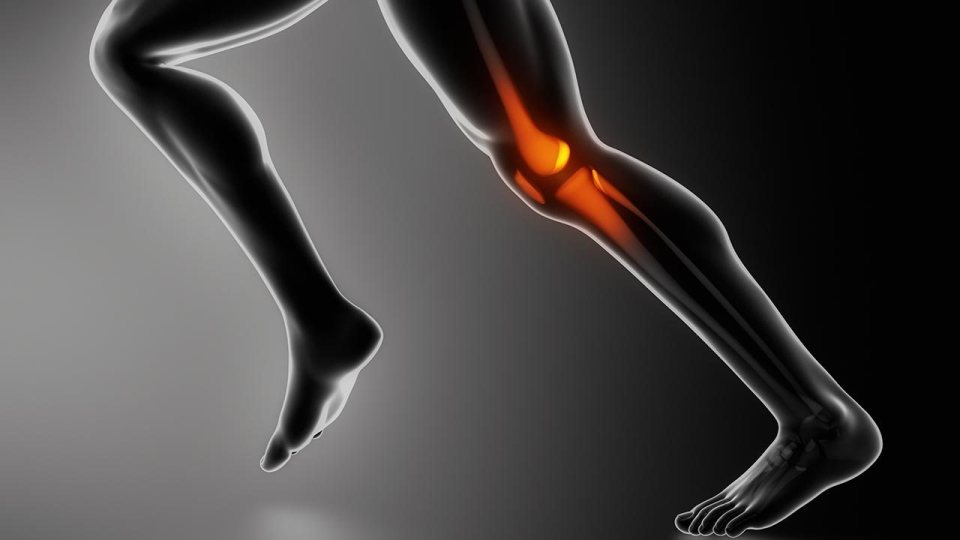

Suffering a Knee Joint Injury?
Pain with squatting, stairs or running, swelling, restricted movement, feelings of ‘giving way’, ‘catching’ or ‘locking up’ are common signs of a knee injury.
Knee pain is one of the more common injuries or complaints we see at City Physio! The knee is a complex joint comprised of 4 bones- the patella (kneecap), the thigh bone (femur) and the 2 shin bones (tibia and fibula). Strong ligaments hold these bones together creating stability and shock-absorbing cartilage (meniscus) sits between the tibia and fibula to cushion the surfaces. These structures are then overlayed with muscles and tendons that ensure the stable and efficient movement of the knee for walking, stairs and playing sport!
Knee pain usually occurs in two ways- as a result of an acute injury or something that creeps up over time without a single mechanism.
Acute knee injuries are very common occurrence in sport and can also happen as a result of a fall, sudden twist or awkward step. Acute injuries of the knee usually involve sprains, strains and even fractures of the knee bones. An acute injury of the knee usually presents with swelling and pain immediately and may cause difficulty in straightening or bending the knee, click, catch or lock or feel like the knee may give way, problems with climbing stairs or even putting weight on the knee to walk. Acute knee injuries require an in depth assessment by a physiotherapist to determine the specific structures that have been injured and to what extent they are damaged. Your physiotherapist can also recommend specific scanning if necessary.
Knee injuries and knee pain can also creep up over time without a single mechanism. For example, you may notice knee pain after sitting for a prolonged period, pain with exercise such as running or squatting or increasing pain over days or months. Your physiotherapist will do a full subjective and objective assessment of your knee considering a wide range of factors including referred pain from the low back or pelvis, the mechanics of the whole lower limb, strength and balance of the muscles surrounding the hip and knee, squat technique, motor control and biomechanical analysis
The knee joint comprises 4 bones: the thigh bone (femur), the shin bones (tibia and fibular) and the kneecap (patella). Together these bones create the foundations of the knee. These bones can be injured with a fall, impact or accident such as a car accident. Fractures of the knee are not the most common but they need to be treated seriously with bracing, casting and on occasion, surgery.
Between the thigh and shin bones is the meniscus or knee cartilage. This cartilage provides shock absorption to the knee! The meniscus is most commonly injured with twisting movements. This can cause a tear in the cartilage that can cause pain with sharp turns or direction change, swelling or even clicking, catching and locking of the knee. The meniscus can also become degenerated with age and wear and tear and have microtears along the edge that can become inflamed. Meniscal injuries can cause swelling of the knee, pain with climbing stairs, and limitations in range of motion as a result. A reduction in the cartilage, or wear through the cartilage is a big contributor to knee joint arthritis.
The muscles form the outermost layer of the knee. The quadriceps muscles are the muscles on the front of the thigh, the hamstrings on the back of the thigh and the calf muscles in the back of the knee and shin. Together these muscles work to move the knee, create stability, ensure the kneecap tracks properly. These muscles can be injured with overexertion, overstretching or with impact causing contusions or muscle tears. All of these things can cause knee pain!
Other knee joint injuries can include iliotibial band injuries, bursitis, kneecap pain, tendonitis and knee joint arthritis.
City Physio & Sports Injury Centre has been providing musculoskeletal physiotherapy in the MLC Centre for over 30 years. Our team are expertly trained in providing detailed full-body assessments and delivering personalised treatment for musculoskeletal conditions, sports injuries, headaches, neck and back pain.
